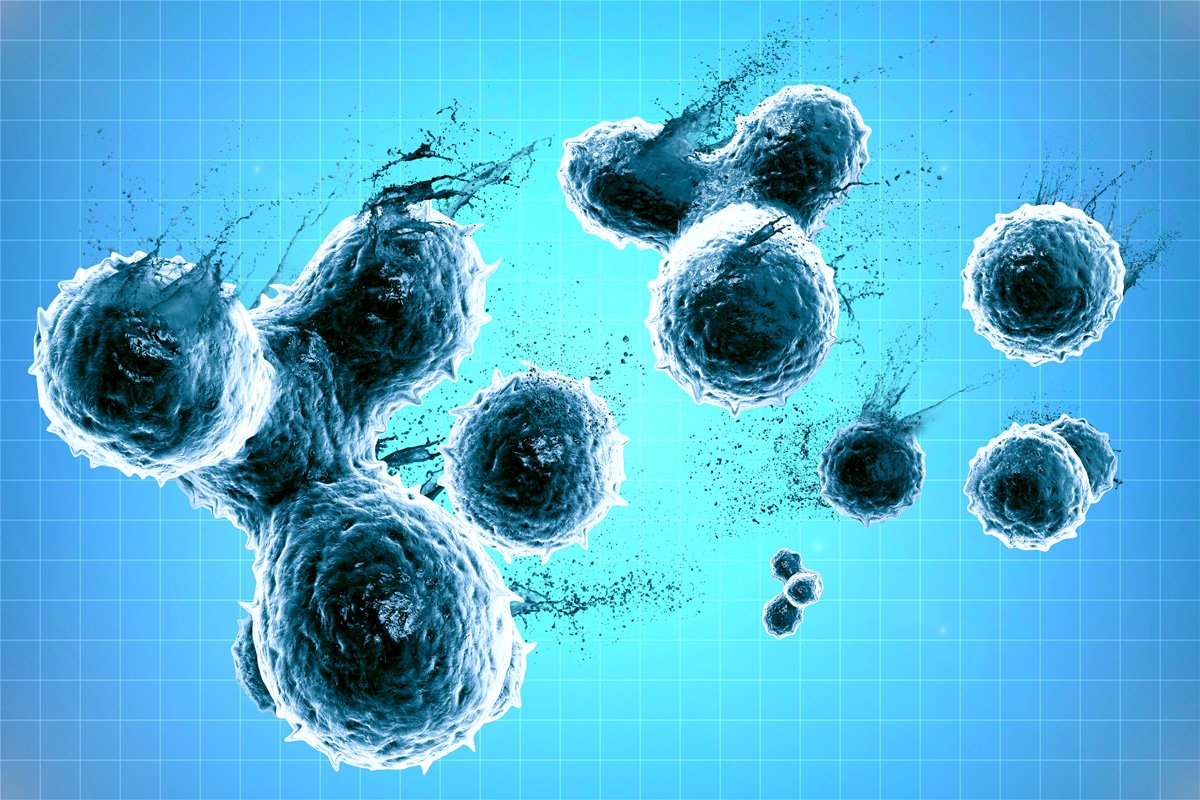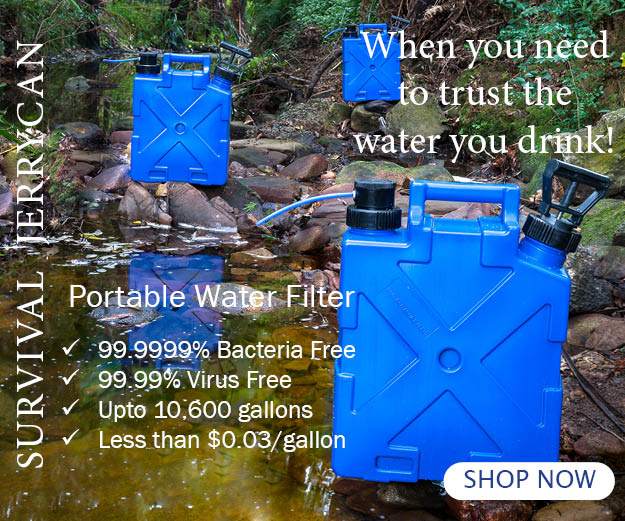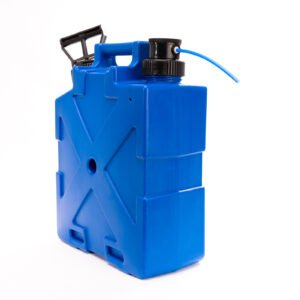Types of Water, Their Problems, Water Cleaning Solutions, Is All Water Equal?
Get To Know Your Water, raises thought-provoking questions in readers, causing them to take a step back and think … is the water that I drink every day really as clean as I think or have been led to think it is?
From the introductory to the very last chapter, this book makes for an interesting read. Written in easy to read language, this book contains everything that you need to know about water. The author presents comprehensive information about Earth’s most precious resource, including a discussion on the ultimate solution—the ideal kind of water that you should drink.
From the introduction, you learn that water is life. This concept stamps down the importance of water. No one can put it any better than this. This is because about 80% of the human body is composed of H2O, which literally means that there is no life without the special H2O. This eBook, written by a water filtration expert who has been building portable water filters for many years, seeks to explore whether all water is equal and, if not, what can be done to make it equal.
All water is most definitely not equal. There is H2O, and then there is clean, filtered, and safe water. What are you drinking? You may have access to clean water at home, but what about what you buy in the stores when you travel? Is that clean and safe too?
We cannot take for granted that all water is the same. Ironically, water may be one of the leading causes of death in the world, which is quite paradoxical because it is supposed to give life. High-quality water is what makes you thrive and feel alive. Therefore, water is life only if it is of the quality that is fit for consumption.
The quality of H2O may decrease in various ways, including contamination after many journeys before it reaches the consumer. Beware that the plastic water bottles you have always seen as prestigious could actually be the most poisonous. The writer of the eBook says that the plastic containers used for buying and drinking water may be unsafe. And we know this is true because there are some plastics that are food grade and some that are not. Now, how often do consumers check whether they have been served water in food-grade plastics? Not often.
Grab your copy of “Is All Water Equal” ebook
Are all water purification methods good?
Bottled water companies claim to use many methods to make their water as close to the pure H2O as possible, but do they really? Or are they mainly concerned with making their product marketable on shelves?
Various types of water have different uses. Apart from drinking, H2O is used in medical applications, for irrigation, and for cleaning contact lenses, among many other uses. People love the convenience of carrying plastic water bottles in their hands while walking or having them in their car for regular drinking. However, it is very unfortunate that many people have never even thought about the fact that sun rays have an adverse effect on water and can cause contamination.
“I loved that the book gives me a solution, which is different from other books that just give an interesting discourse on the problem without suggesting a solution.”
From the different types of water that are available for consumption to different methods of treating water, the writer of this eBook leaves nothing to chance as he delves into the expansive subject of clean and safe water for drinking.
In the e-book, we see the different methods of water purification, such as:
- Deionization
- Reverse Osmosis
- Distillation
- Charcoal Filtering
- Ultraviolet Light
And this raises a few thought-provoking questions like … are all the methods as effective as the water plant companies would like us to think? Does the ultraviolet light treatment take care of the viruses in the water? If not, can you still consider that water clean? Will it be safe to drink?
“I agree with Robert that water is not just water, but it is defined by the quality and now I know that good, safe water should be slightly alkali.”
It is a necessity that you stay hydrated for good health. A good type of liquid aqua should cool and calm you down. It may surprise you to know that even if you are drinking more than two liters a day, you can still find yourself dehydrated almost as if you never drank any. Failing to drink plenty of fluid leads to:
- Dehydration
- Fatigue
- Sleepiness
- Headaches
So what water should you drink?
In an attempt to find the cleanest and healthiest water available in your grocery store, you will find many types of options. How will you know which one you should choose?
Heavy, Hard, and Soft: Heavy water contains an excess amount of hydrogen and is denser than other types. However, it is not recommended for drinking as it can be lethal if taken in large quantities. Some people prefer drinking hard water because they think it is the best option due to the extra minerals it contains.
Some prefer soft water due to the amount of sodium that it contains. Soft water does not react with soaps and detergents like hard water, but it makes them more efficient. Hard water causes damage to your appliances, water heater, and plumbing. Soft water is also not good for your health if you are on a low-salt diet. You would not want to drink hard water from wells because it has a nasty smell, akin to that of rotten eggs. Not only that but also hard water from wells is exposed to contamination from its immediate surroundings.
“I am a believer in everything I drink or eat be homemade, but I did not know I could filter my own water. Now I know, it’s not too late.”
Ground Water: Refers to water that filters through the sand, cracks, and spaces between the rocks into the ground below us. We must appreciate that we depend on groundwater supplies for drinking and irrigation, and that means that we must take care of our environment so that the water formation cycle is not interrupted.
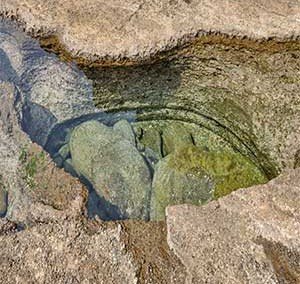 Groundwater is needed for replenishing our bodies of water and wetlands.
Groundwater is needed for replenishing our bodies of water and wetlands.
This type of water is exposed to contamination by things like gasoline, pesticides, cleaners, pharmaceuticals, and other toxic substances, making it unhealthy for drinking.
The pollution of groundwater puts both humans and wildlife at risk.
Bottled Water: The truth can be ugly and disturbing when you realize that bottled water is potentially the worst type of fluid for drinking and that you should avoid it as much as you can. Because of ignorance, this ‘prestigious’ drink may be poisoning your body every day and any time you take a sip, you dig your pit even deeper.
This aqua liquid is supposed to bring with it a long list of health benefits. Unfortunately, bottled water has a negative impact on the health of both those who drink it and those who do not. The extent of the damage caused by these bottles to the environment is huge. The most disgusting bit is that only 10% of plastic bottles are recycled. Furthermore, a considerable amount of fuel is consumed delivering bottled waters and transporting the recycled bottles. Most of us believe that recycling bottles is the best practice because it leaves the environment clean and saves the earth from methane gases. Unfortunately, the recycling process is costly and not as beneficial as we would like to think.
Are you still bragging that you have been leading a healthy lifestyle, bottled H2O in hand? What is the solution then? Fortunately, that is a question with a straightforward answer! A single BPA-free container is an answer you are looking for if you want to eliminate your environmental impact as far as bottled water is concerned. A clean environment is a treasure and so is your health. Bisphenol A is a chemical that imitates estrogen and has a slew of potential health risks associated with it, yet it is found in certain plastic liquid-carrying bottles. It is even worse for a pregnant woman to use plastic bottled water as it puts more than one life in danger. We should all switch to glass immediately and leave plastic alone.
There are dangerous phthalate chemicals that are used to make plastics in order to make them flexible. These chemicals have the potential to cause many developmental and reproductive problems in children, men, and women.
It’s no secret that the water business is very lucrative; therefore, many companies are just in it to make money. Most of the “special aqua” that is sold is just tap water that is attractively bottled to appeal to you. The list of contaminations found in tap “H2O” includes prescription drugs, chlorine, aluminum, and fluoride, just to mention a few.
It is even worse when you expose your water bottle to heat. Ultraviolet rays and the sun’s rays put you at risk because they accelerate the leaching of chemicals into the water. Many people do not mind leaving their H2O in a heated car because they do not know it may be what is slowly killing them.
Vitamin water is another option that is very popular and enjoyed by many across the world. It is common knowledge that many people are obsessed with improving their health and their bodies. Because of this, we are very easily deceived by companies, which market and pose the so-called vitamin water as a health drink.
In most cases, the attractive bottle you are compelled to buy is nothing but the tap-water combined with dangerous synthetic food dyes and high-fructose corn syrup.
Why do you buy bottled water?
If it wasn’t so dangerous, it would be laughable to think that you spend a lot of money on this unsafe commodity because you believe it is healthy, high quality, portable and convenient.
Many buy it because they claim to prefer the taste of bottled water compared to tap water.
For lack of a better word, I would describe this as ironic because bottled water is nearly 1,900 times more expensive than tap water, but they are nearly the same quality and sometimes bottled water is even worse.
“This book was very informative. I did not know there were so many types of water and that water is not just water, theres quality.”
If you drink these …
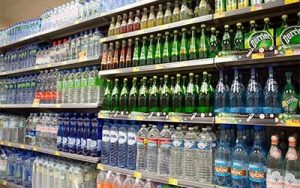 Grocery Types – These are the most common types of drinking water. You need some education to help you in choosing from a range of attractive bottled water displayed in your grocery store. Not all water is created equal and picking the wrong one will bring you more harm than good. From the grocer’s shelves, you are likely to see mineral, purified, spring, and mineral options, among others, all beautifully packaged to attract you. It is painful to discover that most of them, if not all, are simply filled with tap water and bottled for sale.
Grocery Types – These are the most common types of drinking water. You need some education to help you in choosing from a range of attractive bottled water displayed in your grocery store. Not all water is created equal and picking the wrong one will bring you more harm than good. From the grocer’s shelves, you are likely to see mineral, purified, spring, and mineral options, among others, all beautifully packaged to attract you. It is painful to discover that most of them, if not all, are simply filled with tap water and bottled for sale.
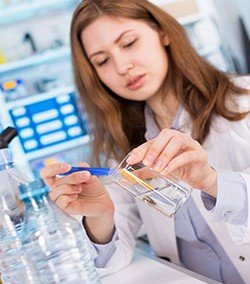
Water Testing – One way of ensuring that you have the better type of water, which is the only option if you are concerned with the health of yourself and others, involves testing. Testing your water before using it is not as complex a process as it sounds. Home testing is recommended. When your water stinks or leaves glaring evidence by way of a yellow or chalky residue, your water obviously contains contaminants. Why not call a professional who will send your water sample to a lab to ascertain whether it contains serious contaminants like lead, bacteria, viruses, and other chemicals?
The ideal solution – what water is best?
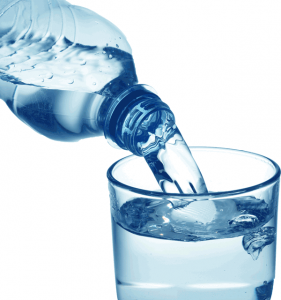 Can you actually find water that’s healthy? The good news is that there are optimal H2O choices available, which ultimately hydrate without putting your life at risk. You should have access to drinking “aqua” all throughout the day, irrespective of where you are, without compromising the quality or quantity.
Can you actually find water that’s healthy? The good news is that there are optimal H2O choices available, which ultimately hydrate without putting your life at risk. You should have access to drinking “aqua” all throughout the day, irrespective of where you are, without compromising the quality or quantity.
Your drinking fluid should be slightly alkaline with the presence of an acceptable amount of magnesium and calcium minerals. You will be delighted to know that there is a way you can purify your aqua fluid whenever and wherever you are.
Filtration – From the comfort of your home, you can have access to the safest, cleanest filtered, and purified water. This makes a lot of sense. If you do not have a reliable way of filtration, mountain spring water from the high altitudes is a good alternative. The purified fluid is then stored safely in a BPA-free container. You have the ability to become a walking water-treatment facility! This is a sure way of making the world a better place for all. There are portable filters, which you can conveniently carry with you anywhere you go. Try the SureAqua product.
